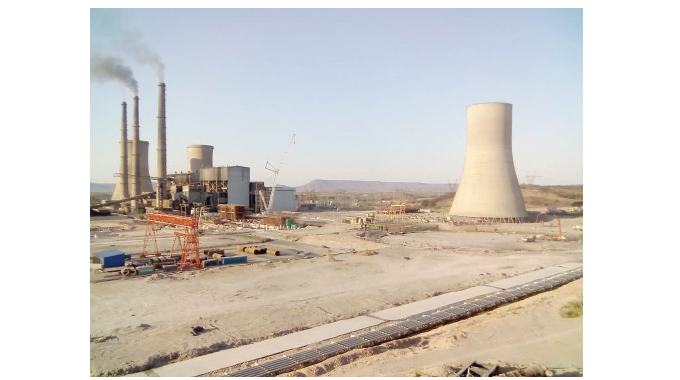Power cuts threaten winter wheat

Yoliswa Dube-Moyo, Matabeleland South Bureau Chief
CONSTANT power cuts in some parts of Matabeleland South province are threatening winter wheat production as farmers are unable to pump water for irrigation.
Of late, Zimbabwe’s power supply situation has worsened on the back of constant breakdowns mainly at the country’s biggest thermal power plant, Hwange Power Station.

Hwange Thermal Power Station
The province surpassed its winter wheat hectarage target by over 110 percent as the country moves to boost domestic output and enhance import substitution.
Wheat production has been rising fast in Zimbabwe and farmers in Matabeleland South are expected to make a meaningful contribution to national output.
Zimbabwe needs at least 360 000 tonnes of wheat annually, with a projected 340 000 tonnes expected to reduce the import bill.
Over the years, the country has been relying on imports to cover the deficit.
The country is targeting more than 85 000 hectares of wheat this winter to ensure self-sufficiency.
Last year, 66 435ha were put under winter wheat and about 180 000 tonnes were harvested.
To achieve the set targets, farmers need an uninterrupted power supply to pump water for irrigation.
According to a recent Ministry of Lands, Agriculture, Fisheries, Water and Rural Development winter wheat progress report, 1 800 hectares were targeted for winter wheat production in the province but 5 396 hectares were registered.
Matabeleland South provincial agricultural officer Mr Mkhunjulelwa Ndlovu said the crop was growing in some parts of the province but continuous power cuts were affecting irrigation.
“Some farmers are managing the crop well, however, where the source of power to pump water is electricity from the country’s power utility, ZPC (Zimbabwe Power Company), there are some challenges due to load shedding,” said Mr Ndlovu.

He said the power cuts are affecting the frequency of irrigation.
“Load shedding has affected the rate of top dressing and the frequency of irrigation. We’re hopeful it’s going to improve so that we achieve a good harvest. At the likes of Guyu and Mtshabezi irrigation schemes where we usually rely on the ZPC for electricity, there are challenges because of load shedding. Those who are using solar and gravity are okay,” said Mr Ndlovu.
He continued: “This includes areas like Arda Ingwizi and Arda Antelope where farmers resort to the use of generators which is very expensive. Beitbridge is also facing the same challenge in terms of power supply at irrigation schemes. Commercial farmers around ward 14 are also affected.”– @Yolisswa











Comments